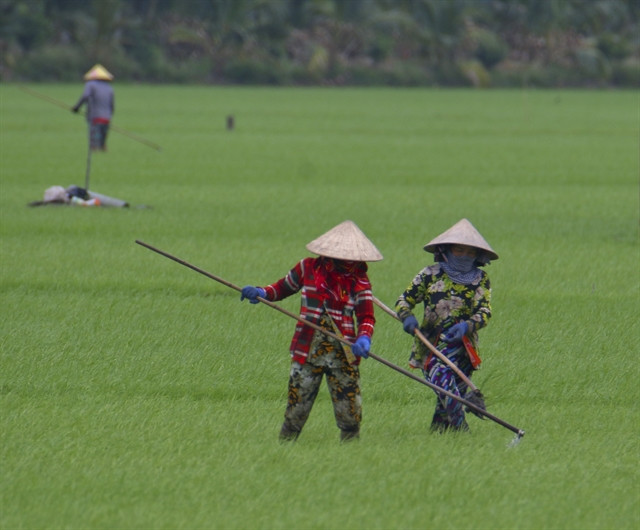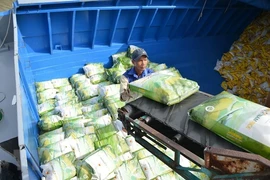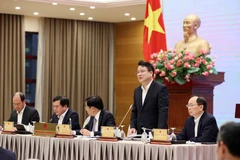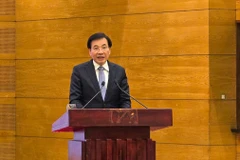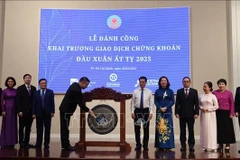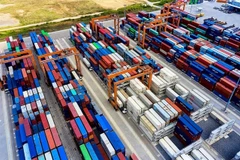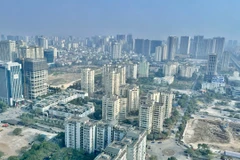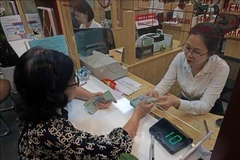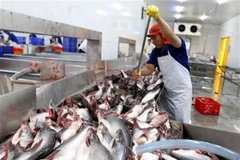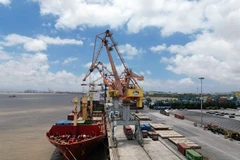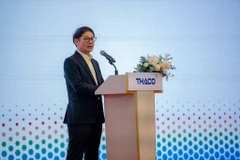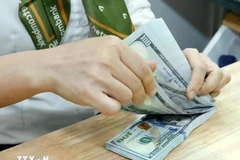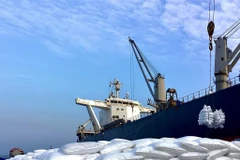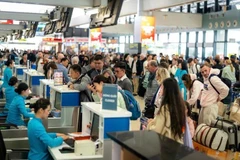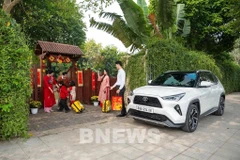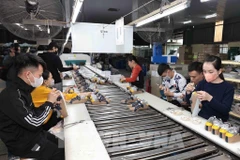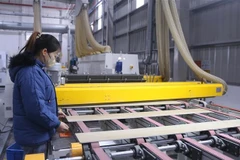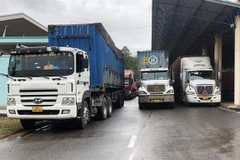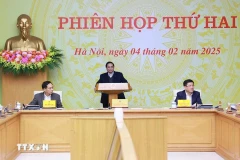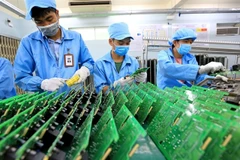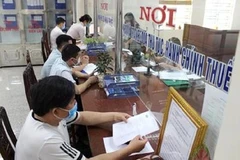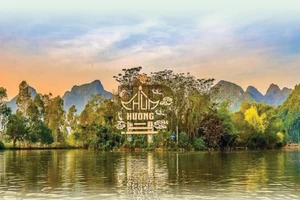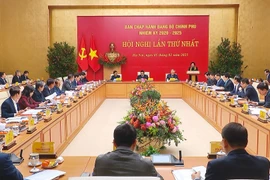Chairing a conference drawing up plans for the project, which washeld on February 5 by the Ministry of Agriculture and Rural Development (MARD)in the Mekong Delta province of Kien Giang, the Deputy PM said that the projectcould be considered a big challenge, because it faced four difficulties.
It would be difficult because for the first time it sets thetarget of one million hectares of high-quality rice while reducing emissions;because of the need to change farmers’ habits; because of the instant effect ofrice price fluctuations on the market; and because of difficulty in reachingagreement related to the interests of organisations and individuals.
To help the project achieve its goals, Deputy PM Quang emphasisedthe principles of wholeheartedness, compliance, flexibility, cooperation andcontrol.
Experience shows that no matter what the difficulty, if the peoplehave the right approach, method and determination, they can do it. For example,in the fight against the COVID-19 pandemic, Vietnam ranked 9th in the world inprevention results.
The Deputy PM confirmed that if people do not comply with plans,principles and standards, they would fail, but they must also be flexible andcreative in making the work suitable for each region and location.
Especially, the work must adapt to the increasingly serious andunpredictable impacts of climate change.
He said that there must be good cooperation, first of all innegotiating loans, and coordinating between central agencies and localities,and between businesses.
He emphasised: "We will fail if each business participates inthis project in its own, unique way, without strong compliance andcoordination."
Besides, programmes must be well integrated to create synergy towin together.
The Deputy PM mentioned the need for good control and promptadjustment to suit the actual situation on the basis of regular reviews,especially spreading good models and methods.
Affirming that the Government will accompany the project, heassigned the MARD to soon submit the project’s plans and policies to theGovernment.
He assigned the Ministry of Finance to set up a scheme to call forcapital for the project.
Regarding official development assistance (ODA) capital, theDeputy PM noted that it was necessary to pay close attention to the negotiationto harmonise procedures between Vietnam and donors, facilitating disbursementafter receiving the loans.
Speaking at the conference, Deputy Minister of Agriculture andRural Development Tran Thanh Nam emphasised that the Mekong Delta was the mainrice production region of Vietnam.
Project
Rice output in the region has recently been stable at 24-25million tonnes per year, accounting for over 55% of the country’s total amountand 90% of the country's rice exports.
The yield contributes to creating jobs and stable income formillions of households in the region.
Many advanced and environmentally friendly rice production models,programmes and projects have been implemented promoting solid rice production,increasing income for farmers, reducing greenhouse gas emissions and increasingthe competitiveness of Vietnamese rice.
A typical example is the Vietnam Sustainable AgricultureTransformation Project (VnSAT) implemented in 2015-22, funded by the WorldBank.
Under the project, sustainable farming techniques were applied onabout 180,000ha of rice.
Farmers participating in about 400 cooperatives implemented firmfarming processes.
They increased profits by 30%, reduced production costs by 30-40%and reduced carbon emissions by about 1.5 million tonnes per year.
However, according to Nam, the Mekong Delta rice industrystill has limitations.
The region does not have many concentrated, large-scale rice areaswith linkages between rice growers and cooperatives or businesses.
Rice cultivation is not sustainable because farmers still use alot of chemical fertilisers and pesticides, which affect the environment andincrease greenhouse gas emissions.
Minister of Agriculture and Rural Development Le Minh Hoanconfirmed that the project was particularly significant in transforming ricefarming methods in the Mekong Delta.
It would form and develop large-scale, long-term stableconcentrated raw material areas, ensuring quality and efficient crops.
Promoting effectiveness
The project will be deployed in 12 provinces and cities in theMekong Delta, including An Giang, Kien Giang, Dong Thap, Long An, Soc Trang, CanTho, Bac Lieu, Tra Vinh, Hau Giang, Ca Mau, Tien Giang and Vinh Long.
The project covers an area of one million hectares.
It is expected to reorganise the production system, applysustainable farming processes to increase value, sustainably enhancing the riceindustry, and improving the production efficiency and income of rice growers.
It will protect the environment, adapt to climate change andreduce greenhouse gas emissions, contributing to implementing Vietnam'snational commitments.
The goal is that by 2030, the high-quality rice areas will reachone million hectares.
Chemical fertilisers and pesticides of chemical origin will bereduced by 30%. Irrigation water will be down by 20% compared to traditionalfarming. Sustainable rice production standards will be certified.
All of the high-quality area has links between businesses andcooperatives or farmer organisations in production and consumption. Thesynchronous mechanisation will reach over 70% of the area. Over 1,000,000households will apply durable farming processes. All straw will be collectedand processed for reuse.
Greenhouse gas emissions will down by over 10% compared totraditional rice farming.
The amount of high-quality rice exported will account for over 20%of the total rice export volume of the region./.
